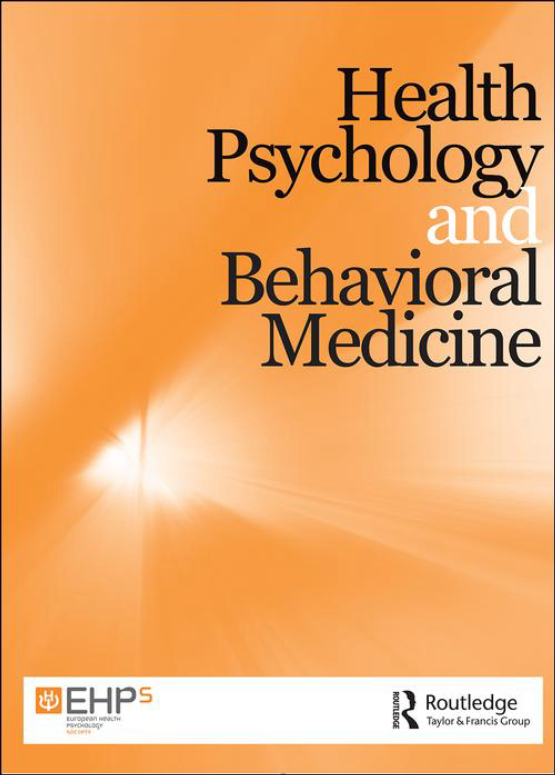Submit a Manuscript to the Journal
Health Psychology and Behavioral Medicine
For an Article Collection on
Understanding and Promoting Healthy Eating Using Digital Technology
Manuscript deadline
01 October 2024


Article collection guest advisor(s)
Professor Laura M. König,
University of Vienna
[email protected]
Dr Alea Ruf,
University of Vienna
[email protected]
Understanding and Promoting Healthy Eating Using Digital Technology
Intake of energy-dense, nutrient-poor foods exceeds recommendations in many countries; at the same time, many people do not consume sufficient amounts of vegetables, fruits, legumes, and whole grains. These unhealthy diets have serious implications for health and well-being, such as increasing the prevalence of a range of noncommunicable diseases including diabetes and cancers, which may lead to premature death or reduced quality of life. Numerous factors have been found to affect dietary healthiness in individuals and societies, ranging from socio-demographic and psychological factors to determinants in social and physical environments, to industry practices and policy, to food cultures. To date, little is known about the complex interplay of these determinants in real-life contexts, and which interventions are most effective in helping individuals to navigate complex food choice environments.
Although the health implications of unhealthy diets have been known and communicated to the public for decades, dietary habits of the population have not improved so far, and overweight and related noncommunicable diseases are still on the rise. Identifying new strategies to promote healthier diets, that ideally are also in line with recommendations to promote planetary health, is thus imperative. Digital technology, such as smartphone apps, sensors or virtual reality, offers unprecedented opportunities to study eating behaviour, its determinants and consequences in real life and real time. It so allows to gain a more nuanced understanding of the underlying mechanisms of food choices and eating in daily life, while overcoming limitations of surveys and laboratory studies such as recall bias or limited external validity. Building on these insights, digital technology can be used to intervene in a tailored fashion when help is most needed, and potentially reach many people at relatively low cost. This article collection thus aims to explore the benefits – but also potential pitfalls – of using digital technology in behavioural science (including, but not limited to psychology) to study the determinants of and interventions to promote healthy eating and thereby to improve population health.
We invite contributions that use digital technology (e.g., websites, text messages, smartphone apps, digital sensors, virtual and augmented reality) to study determinants of or barriers to healthy eating, or report on the development or testing of interventions that use digital technology to promote healthy eating in various populations and settings. Topics may include, but are not limited to:
- Tests of (psychological) theory in the context of healthy eating
- Studying the impact of social or physical environments on eating
- The portrayal of diets and eating on social media
- Understanding temporal dynamics of eating within different timeframes
- Promoting healthy and sustainable food consumption
- Digital dietary interventions for marginalised groups
Other contributions such as systematic reviews and meta-analyses, articles addressing methodological issues in the study of eating behaviour using digital technology, or comments on implementation and policy-related issues are also welcomed. We explicitly encourage authors to adhere to open science principles (e.g., preregistration, sharing data and materials), including the submission of registered reports.
Professor Laura M. König is Professor of Health Psychology at the University of Vienna. She obtained her PhD in Health Psychology from the University of Konstanz in 2018. Prior to joining the University of Vienna in 2023, she was a postdoctoral researcher at the University of Konstanz (2018-2020) and the University of Cambridge (2020), and Assistant Professor of Public Health Nutrition at the University of Bayreuth (2020-2023). In her research, she uses smartphone apps to study and change health behaviors including eating. She furthermore studies research participation effects such as measurement reactivity to improve the data quality of digital behavioral assessments.
After completing her PhD in Psychology at the Goethe University Frankfurt in 2023, Alea Ruf joined the Health Psychology Group at the University of Vienna as a Postdoctoral Researcher in January 2024. During her doctoral studies, she coordinated the APPetite study, an Ecological Momentary Assessment study capturing food intake through a smartphone application. Her PhD thesis focused on stress and food intake in daily life.
Benefits of publishing open access within Taylor & Francis
Global marketing and publicity, ensuring your research reaches the people you want it to.
Article Collections bring together the latest research on hot topics from influential researchers across the globe.
Rigorous peer review for every open access article.
Rapid online publication allowing you to share your work quickly.
Looking to Publish your Research?
Find out how to publish your research open access with Taylor & Francis Group.
Choose open accessSubmission Instructions
All manuscripts submitted to this Article Collection will undergo desk assessment and peer-review as part of our standard editorial process. Guest Advisors for this collection will not be involved in peer-reviewing manuscripts unless they are an existing member of the Editorial Board. Please review the journal Aims and Scope and author submission instructions prior to submitting a manuscript.